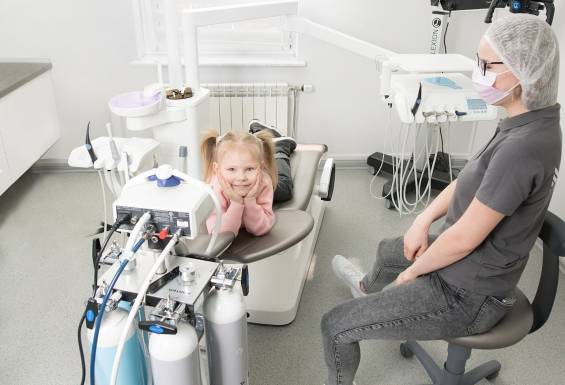Tooth Extraction: We'll take the tooth, but leave the smile
~We’ll get your tooth out of your way, so you can get back to your life. Experience Supercare effective and professional tooth extraction services~
Tooth extraction can often be a necessary dental procedure, but it does not have to be a painful one. At Supercare Dental & Cosmetics, we vie to provide safe and comfortable tooth extraction, ensuring the best possible outcome for our patients. From helping you understand the need for extraction to post-procedure care, we are here to guide you through every step of your tooth extraction.
It is better to remove a tooth than always experience tooth pain. People may require tooth extraction for many reasons, but the main aim is to have better oral health.
What is tooth extraction?
Tooth extraction is the removal of a tooth from its socket in the bone. A tooth has to be extracted when it is severely damaged, decayed, infected, or impacted (unable to emerge properly). Our experienced dentists evaluate each case thoroughly to determine if tooth extraction is the best course of action or if your tooth can be saved.
When do you need a dental removal?
Tooth extraction, or dental removal, becomes necessary under various circumstances, particularly to preserve oral health and prevent further complications. At Supercare, we provide insights into the following common scenarios that might warrant a dental removal:
- Severe tooth decay
- Advanced gum disease
- Impacted wisdom teeth
- Overcrowding of teeth
- Late-stage tooth infection
- Fractured or damaged Teeth
- Preparation for orthodontic treatment
- Baby teeth that are not falling out
- Risk of infection
- Aesthetic considerations
The procedure of tooth extraction
At Supercare, we prioritise your comfort and well-being during every dental procedure, including tooth extraction. Simple extractions are typically quick, while surgical extractions may involve more complex steps. Here’s a step-by-step breakdown of the procedure of tooth extraction:
Before starting the extraction, our dental team will administer local anaesthetic to numb the area around the tooth.
The dentist will then use specialised instruments to gently loosen the tooth within its socket. This minimises discomfort during the extraction process.
Using dental forceps, the dentist will carefully and skilfully remove the tooth from its socket. In some cases, the tooth might be divided into sections for easier removal.
After extraction, a blood clot naturally forms in the socket. This clot serves as protection and helps with healing.
To control bleeding and encourage clot formation, the dentist will place a piece of sterile gauze on the tooth extraction site and ask you to bite down gently.
After the procedure of tooth extraction is complete, our dental professional will provide you with detailed post-extraction care instructions. These guidelines will help you manage pain, swelling, and potential bleeding to ensure proper healing.
Costs of tooth extraction
The cost of a simple tooth extraction ranges from AUD $120 to $300 in and around Sydney. A surgical tooth extraction may cost between AUD $250 and $550.
If you have dental insurance, your insurance may cover part of the cost of a tooth extraction. Alternatively, in case you don’t have a health plan and the tooth is causing too much pain or inconvenience, you can use your Super to cover the cost of your dental extraction.
Dental extraction aftercare instructions
After dental extraction, proper aftercare is essential to promote healing, prevent complications, and ensure your comfort. We are here to provide comprehensive aftercare instructions to guide you through the recovery process of your dental extraction:
- Keep the gauze pad placed over the extraction site for about 30-45 minutes after the procedure.
- Rest and avoid strenuous activity for the remainder of the day after the extraction.
- If you experience discomfort, take the prescribed pain medications.
- For swelling, apply an ice pack to the outside of your cheek in intervals of 20 minutes.
- Avoid contact with the extraction site when brushing or flossing for the first 24 hours.
- Stick to soft foods for the first few days after the extraction.
- Refrain from smoking and consuming alcohol for at least 48 hours after the extraction.
- Avoid sucking through straws, spitting forcefully, or blowing your nose vigorously when healing from the extraction.


Possible risks after dental removal
While complications after dental removal are rare, they can include infection, dry socket (a painful condition where the blood clot dislodges from the socket), excessive bleeding, and delayed healing. Our team takes every precaution to minimise any and all risks involved with dental removal.
Infected tooth extraction appointments
If you have an infected tooth, prompt extraction might be necessary to prevent the infection from spreading. We approach infected tooth extraction with a focus on your well-being. Our experienced professionals put your comfort and safety first during the infected tooth extraction process to ensure efficient and effective treatment.
Contact us today to schedule a consultation and get rid of that painful tooth once and forever.
Benefits of getting a tooth extraction
Helps relieve pain
Helps relieve pain
Improves the well being and quality of life by making chewing pain-free and relieving overall oral pain.
Can save the rest of your teeth
Can save the rest of your teeth
Tooth extraction can be helpful by compromising a damaged tooth to preserve the rest of the teeth and save you from further expenditures on tooth problems.
Help achieve your smile goals
Help achieve your smile goals
A pain-free and and healthy teeth set will automatically give you the pleasing and aesthetic smile which you crave for.
Tooth extraction FAQs
The recovery time after a tooth extraction varies based on factors like the tooth’s location (molar, incisor, canine, etc.) and the extraction complexity. Generally, the initial healing phase takes around 1-2 weeks. Discomfort and swelling usually peak within the first 48 hours and then gradually subside.
After a tooth extraction, a blood clot forms in the socket. The placed gauze controls the initial bleeding. During the healing process. rest and avoid strenuous activity. Manage the pain and swelling using cold compresses and the prescribed pain relievers. Be sure to eat soft foods, maintain oral hygiene, and attend follow-up appointments if required.
Before a tooth extraction, your dentist will assess the tooth’s condition and take X-rays if required. Then, you will be administered anaesthesia and the dentists will discuss the procedure and post-care measures.
During the tooth extraction procedure, your dentist will numb the area with anaesthesia, loosen the tooth using special tools, and gently remove it. Gauze will be placed to control bleeding, and sometimes stitches may have to be used. Finally, you will receive the post-operative care instructions.
Tooth extraction can have advantages when a tooth is severely damaged, infected, or causing crowding. It relieves pain, prevents infection spread, and creates space for orthodontic treatment.
